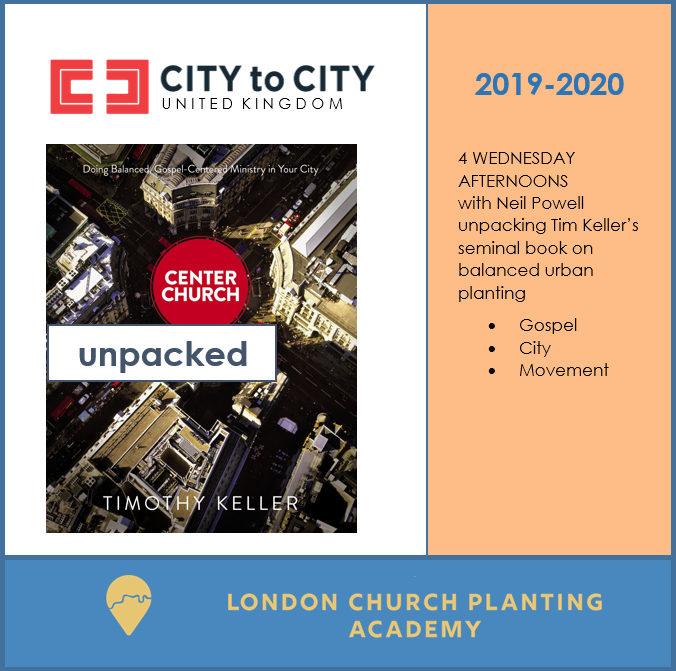The LCPA is based in London and our training is largely focused on the London context but we’re increasingly wanting to serve planters further afield and also to learn from planters further afield. Harrison Mungai led the planting of a church (now a church-planting church) in 2017 and he reflects here on what he’s been learning. The context might be 4000 miles away but there’s a lot that transfers.
The last two decades have seen surging interest in church planting among theologically conservative churches across the world. Here in Kenya this has perhaps been driven by growing regard for reformed theology and a people who are hungry for faithful, clear application of Bible truth. While it was once seen as an arduous task reserved only for the most daring individuals back in the day, now most healthy churches would consider it an important part of their missional strategy to plant churches. Movements such as Acts 29 and City to City have emerged to encourage and support churches and individuals who sense a calling towards church planting.
As a result, it almost became trendy to plant churches a few years ago with seemingly every theology graduate running in the direction of church planting. A friend once remarked, when I asked him when he is thinking of planting, “The bug has not yet hit me.” On the face of it then, it might seem like suddenly church planting is an easy thing to do and so many can easily jump into it. Unfortunately, the results can be disastrous as many plants struggle to rise to be a functional body of believers.
Here then are four lessons I have learnt on our path of planting GracePoint Church in Kikuyu, on
the outskirts of Nairobi.
1. Church planting is extremely hard work – Roll up your sleeves.
Whereas a lot of help in terms of training and resources is potentially available to planters, the work of envisioning, gathering, planning and organizing a church plant still remains a huge undertaking. It is easy to imagine the body of believers as an organic gathering of like-minded people and as such everything will flow naturally.
But the reality is Sundays will immediately begin to feel like they are only a day apart. The hard work of sermon preparation, prayer, shepherding, administration, fund-raising, managing teams begin to take their toll and you soon realize that there is more to do than there is time for. Sadly, more crucial tasks like prayer and personal walk with the Lord can suffer as time is spent in what the planter thinks are more ‘strategic’ tasks.
The task of clarifying and explaining motives was particularly hard for me. How do others perceive this work? How are they reading our motives? Whereas I would like to say I was not bothered by people’s opinion as long as my motives were gospel-serving, the reality is that I was quite concerned about how others were reading our motives in planting a church and sometimes my worries may have been less than godly.
So the work is hard – emotionally, mentally and physically. Be ready to work extremely hard.
2. The unexpected happens – Allow for adjustments and adaptation.
We live in a world obsessed with planning and organizing our lives. We plan for months and even years in advance before the actual launch of a church. The temptation then is to imagine that ‘we got this’ and when something unusual comes up, we can get quite disoriented.
Planning is good and should be done meticulously to the last detail. However, since a local church involves other people (!), we need to allow a huge margin of disruption to our plans. Because, most likely, it will happen. Either the timing will change, venues will prove problematic or some people you had hoped will jump at the idea of the new church may not be hugely excited after all.
For us (even before the massive disruption of coronavirus) it was a mix of issues. In my mind I had assumed we will evangelise the area, perhaps find ‘fine’ Christians who have moved into the area recently and were looking for a gospel-centred church to be part of, and then we would be a picture-perfect, happy church family. The reality is that, as soon as the doors open, all sorts of people come with all sorts of (often mixed) motives – onlookers, naysayers, excited friends and non-believers. I was not ready for that and had to make quite a number of adjustments as the weeks rolled on.
Be prepared then to make necessary adaptions to changing circumstances and church composition so that you can keep preaching the gospel appropriately and feed the people the Lord brings to you.
3. There will be mistakes and misunderstandings – Apply the gospel to yourself and others.
Far too often I assumed that the church will run like clockwork. I had forgotten my own sinfulness as a human being and left little room for mistakes and misunderstandings. I wanted a perfect church where time is well managed, children are well behaved and their programmes run well and where relationships among the members are healthy. I could not have been more wrong.
Church planting is about bringing people together in order to pursue a gospel cause. The call to go in Matthew 28 is communal and not personal and as such we must work together as a team. And working with others is hard and demanding. This is especially difficult for certain personality types who find it easier to work alone like me. In the course of rallying others and getting them excited about the church plant, personal relationships will suffer strain. Learning how to share roles, responsibilities and power that might come with a church plant is very important. It took me time to understand that people are driven, to a certain extent, by their needs and how best to apply the gospel to those needs.
Conflict can easily set in when relationships are not well managed and that can ruin otherwise good work. Church planters will need to learn to extend grace to themselves as they do to others.
4. There will be moments of great joy and encouragement – Praise the Lord.
Whereas church planting is hard work and calls for a lot more than we can imagine at first, the Lord who commissioned the first church planters in Matthew 28:19 promised to always be with them. It is no surprise then that in the course of the work there is overwhelming joy as the Lord works powerfully, often behind the scenes, to make His work go forward.
As was the case for the apostles in the book of Acts, help sometimes does come from unexpected quarters and can take many forms. For us, it was ordinary and extraordinary things alike. One of the encouragements we got very early on was in finding a venue. A local man owned a house on its own compound and he had struggled to find a tenant for it for a while. I happened to drive past and saw the sign that it was available. On enquiring, the rent was fairly high but he was open to some negotiation. We settled on a price and he was happy to give us a long-term lease on the property. That has been a great help to us this past three years.
We got a very warm welcome in the neighbourhood and people came in encouraging numbers soon afterwards. We got good commendations from other churches and received unusual support to get off the ground. We are now about 135 on membership and approximately 200 in attendance. There have been many other encouragements and for that we praise the Lord for his graciousness to us.
We still think of ourselves as a plant but, 3 years in, maybe it is time to drop the tag and get on with thinking about planting other gospel-centred churches in our city.
Harrison Mungai Macharia is Lead Pastor of GracePoint Church, Kikuyu.



 We’re very grateful that Neil Powell, senior pastor of City Church Birmingham, co-founder and convener of 2020 Birmingham and London director for City to City UK, will be coming to unpack Tim Keller’s Center Church for the London Church Planting Academy on 4 Wednesday afternoons:
We’re very grateful that Neil Powell, senior pastor of City Church Birmingham, co-founder and convener of 2020 Birmingham and London director for City to City UK, will be coming to unpack Tim Keller’s Center Church for the London Church Planting Academy on 4 Wednesday afternoons: